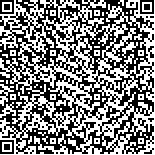赵紫岐,赵科洪,屈云.计算机辅助认知训练治疗卒中后认知功能障碍的多中心随机对照研究[J].中华物理医学与康复杂志,2022,44(11):978-981
扫码阅读全文

|
| 计算机辅助认知训练治疗卒中后认知功能障碍的多中心随机对照研究 |
|
| |
| DOI:10.3760/cma.j.issn.0254-1424.2022.11.004 |
| 中文关键词: 计算机辅助认知训练 脑卒中 认知功能障碍 即刻记忆 延迟记忆 计算能力 |
| 英文关键词: Computer-assisted training Cognition training Stroke Cognitive dysfunction Immediate memory Delayed memory Computation ability |
| 基金项目:国家重点研发计划资助项目(2017YFC1308500) |
|
| 摘要点击次数: 4816 |
| 全文下载次数: 5058 |
| 中文摘要: |
| 目的 研究计算机辅助认知训练治疗卒中后认知功能障碍的临床疗效。 方法 筛选31家医院就诊的脑卒中后血管性认知功能障碍患者155例,按随机数字表法分为对照组和观察组两组,失访6例,最终对照组72例,观察组77例。对照组给予脑卒中后常规认知训练,每日训练30 min,5 d/周,共治疗2周;观察组应用计算机辅助认知训练,每日训练30 min,5 d/周,共治疗2周。分别于治疗前和治疗2周后(治疗后),采用简易精神状态评价量表(MMSE)以及蒙特利尔认知测验(MoCA)评估2组患者的总体认知功能。 结果 ①治疗后,2组患者的MMSE评分[观察组(22.55±3.62)分;对照组(21.75±4.30)分]和MoCA评分[观察组(19.69±4.43)分;对照组(19.10±5.58)分]均较组内治疗前[MMSE总分(19.34±3.08)和(19.74±3.11)分;MoCA总分(16.79±4.58)和(17.74±5.25)分]有明显改善(P<0.05),但观察组治疗后的MMSE评分总分及MoCA评分总分与对照组组间比较,差异均无统计学意义(P>0.05)。②治疗后,观察组患者MMSE量表中的即刻记忆、计算力和注意力、延迟记忆三个分项目均较对照组有明显提高,且组间差异有统计学意义(P<0.05)。 结论 卒中后认知功能障碍的患者能够通过计算机辅助认知训练改善其整体的认知功能,达到与常规认知训练相等的治疗效果;并在提高即刻记忆、计算能力以及延迟记忆三方面认知能力方面较卒中后常规认知治疗的疗效更为突出。 |
| 英文摘要: |
| Objective To explore the clinical efficacy of computer-assisted cognitive training in the treatment of cognitive impairment after stroke. Methods A total of 155 stroke survivors with vascular cognitive impairment were identified at 31 hospitals. They were randomly divided into a control group of 72 and an experimental group of 77 (6 failed to follow up). The control group received 30 minutes of conventional cognition training 5 times a week for 2 weeks, while the experimental group was given computer-assisted cognition training. Before and after the treatment, both groups′ cognition was evaluated using Chinese versions of the Mini Mental State Assessment Scale (MMSE) and the Montreal Cognitive Test (MoCA). Results After the treatment, the average MMSE and MoCA scores of the observation group [(22.5±3.62) and (19.69±4.43)] and the control group [(21.7±4.30) and (19.10±5.58)] were significantly better than those before the treatment [(19.3±3.08) and (16.79±4.58); (19.7±3.11) and (17.74±5.25)]. The post-treatment difference between the groups′ averages was not significant, but the observation group′s improvements on the immediate memory, delayed memory and calculation portions of the MMSE were significantly greater than those of the control group. Conclusions Computer-assisted cognition training can improve the overall cognitive functioning of stroke survivors, achieving the same therapeutic effect as conventional cognitive therapy. It is more effective than conventional cognitive therapy in promoting immediate memory, delayed memory and calculation ability. |
|
查看全文
查看/发表评论 下载PDF阅读器 |
| 关闭 |